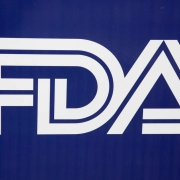FDA Adcomm backs new surrogate endpoint for accelerated approvals in blood cancer
FDA Adcomm backs new surrogate endpoint for accelerated approvals in blood cancer
Published: Apr 15, 2024
By Tristan Manalac
BioSpace
The FDA’s Oncologic Drugs Advisory Committee on Friday voted unanimously in support of using minimal residual disease as a new surrogate endpoint for the accelerated approval of drugs for the treatment of multiple myeloma.
All 12 members of the advisory committee expressed strong support for the use of minimal residual disease (MRD) as an intermediate measure of a drug’s efficacy. If the FDA signs off on the use of MRD, it could bring more innovative treatments to patients more rapidly without sacrificing the regulator’s high bar for clinical benefit and safety, particularly as accelerated drugs are contingent on confirmatory trials.
“Because we live in the real world, the evidence for a trial-level association is less robust. We’re always going to be looking in the rear-view mirror,” Chris Hourigan, director of Virginia Tech’s Fralin Biomedical Research Institute, said during the meeting.
“There is harm to inaction. We’re not currently curing people with multiple myeloma, and I’m not willing to make patients wait on principle for a theoretical perfect that may never come”, Hourigan said.
The panelists also recognized that implementing a new surrogate endpoint could have far-reaching implications for cancer drug development. Ravi Madan, senior clinician at the National Cancer Institute, cautioned that using MRD as an intermediate metric for accelerated approval “will change the incentive structure” for preclinical modelling, clinical development and early clinical trials.
Madan added that pharma companies could be pressured to “hit the MRD mark” and discontinue drugs that fall short of this bar, even if the treatment could have been effective otherwise.
In multiple myeloma, standard-of-care treatments have led to “substantial improvements” in patient outcomes in all treatment settings, including progression-free survival (PFS) and overall survival (OS), according to a briefing document published ahead of Friday’s adcomm meeting. Nevertheless, multiple myeloma “remains an incurable disease.”
However, because patients have been surviving for longer periods, it has become increasingly impractical for companies to follow trials through to a survival readout, which in turn makes drug development for multiple myeloma more difficult. MRD, which is a specific measure of tumor burden assessed via a bone marrow sample, could provide a good intermediate marker for a drug’s efficacy.
Friday’s adcomm meeting focused on two meta-analyses, synthesizing data from thousands of patients across several studies. Results pointed to strong individual-level associations between MRD and progression-free survival (PFS) and overall survival (OS).
The FDA’s internal reviewers in a briefing document noted that the regulator also generally agrees that MRD is a reasonable predictor of clinical benefit on an individual level. However, some uncertainties remain, especially regarding its trial-level associations with PFS, which the FDA found to be “weak-to-moderate.” MRD showed no trial-level association with OS.
A study presented at last week’s American Association for Cancer Research annual meeting showed that less than half of cancer drugs approved via the FDA’s accelerated approval pathway demonstrated clinical benefit in confirmatory trials in terms of overall survival or quality of life.
Source: BioSpace









